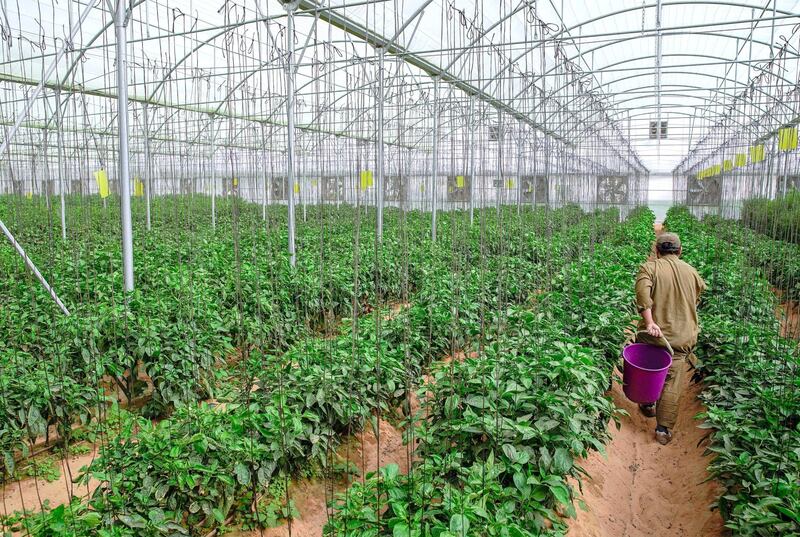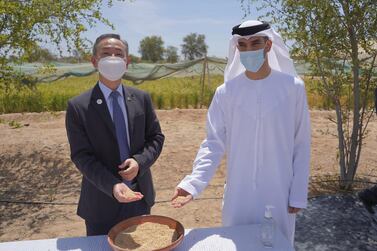The world’s largest indoor farm is set to be built in the Abu Dhabi desert. The GreenFactory Emirates is an ambitious farming project housing a 7.5-hectare plot with a cultivation area spanning 160,000 square metres. The record-breaking indoor farm is “instrumental” to the UAE’s drive to boost local agriculture and improve its food security, according to Mariam Al Mheiri, Minister of State for Food Security. It is also key to developing more “sustainable food systems” in the Emirates.
Launched by Abu Dhabi's RainMaker Capital Investment in partnership with Dutch company GrowGroup IFS, the project has set an ambitious goal: to produce 10,000 tonnes of food each year. The high-technology facility will house an indoor growing system combining vertical and flat farming to grow fruits and vegetables in an arid climate.
Not only will the farm be designed to grow many tonnes of food in the desert, the project is also more eco-friendly than traditional farming. Its advanced methods can reduce water consumption by an impressive 95 per cent and cut carbon footprint by 40 per cent.
Investing in agriculture is crucial for any country striving for self-reliance and food security. Last month, Sheikh Mohammed bin Rashid, Vice President and Ruler of Dubai, said the Covid-19 pandemic had pushed the country to make its food and water security strategy a top priority.
The UAE has harnessed the power of technology to grow food locally for quite some time. Developing the agritech industry has become all the more important today as global supply chains are disrupted by Covid-19 restrictions and an economic recession, driving demand for local or regional goods.
GreenFactory Emirates is only the latest agriculture feat to take root in the UAE. Earlier this year, Abu Dhabi Investment Office launched a $100 million fund to develop agritech in the country. Staple vegetables such as tomatoes and potatoes, which normally cannot grow in a desert climate, are now locally produced and widely available in supermarkets all over the UAE.
Gulf countries have had unexpected success stories when it comes to local agriculture. Saudi Arabia for instance, has developed a dairy industry that is renowned in the region.
Desert agriculture has become a reality thanks to experts from all four corners of the world. International co-operation is a driver for agritech in the Gulf, even as countries look to grow their food and produce goods more locally. For instance, the Netherlands' embassy played an important role in bringing together the two businesses behind GreenFactory Emirates.
"We hope to intensify our co-operation with the UAE to further develop the local agriculture ecosystem," Dutch ambassador to the UAE Lody Embrechts told The National.
Another project combining international expertise with local talent was announced in June. UAE scientists and South Korean experts plan to grow rice in the Sharjah deserts.
The UAE is renowned for breaking boundaries in all sectors, including science and innovation. In the past year alone, the nation has sent an astronaut to space and launched the Middle East’s first civilian nuclear programme. The Emirates continues to invest massively in local agriculture – and is already reaping results in produce. Emirati agritech is proof that with good will, hard work and a long-term vision, nothing is impossible.






